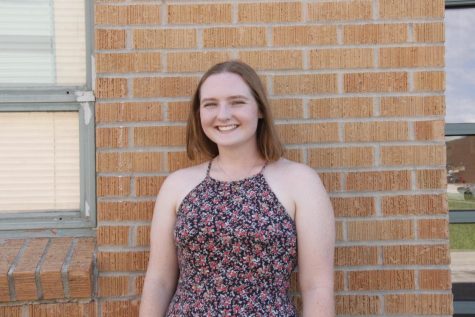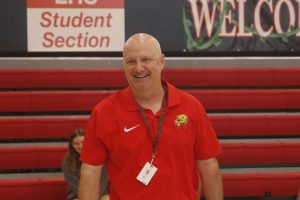Paras unite with teachers union
Paraprofessionals work with the teachers union to improve employment rights
Helping Hand— Paraprofessional Jennifer Stock helps freshmen students work in English class.
February 8, 2018
What started out as one paraeducator’s complaint with the district’s current system for management and treatment of paraeducators quickly blossomed into a strong movement, supported by the Lawrence Education Association.
Bargaining for a better work environment, many paraprofessionals across the district have recently become involved in a mission for professional equality.
The paras involved with the movement worked with key members of the Kansas National Education Association and the Lawrence Education Association to voice their complaints. They are working to get improved job security, better wages, and overall better treatment and respect for paras across the district. Many feel they are not being treated with the same respect that other faculty members are.
“Some paraeducators feel like second class citizens in their own buildings,” LHS paraeducator Jennifer Stock said. “We really want to build a climate of respect and inclusion.”
The paras held multiple public hearings with LEA to work out a solution to their concerns, and soon partnered with the LEA to join the organization as a separate branch.
Although they have made an important step toward having their voices heard, the paras are still trying to obtain the same privileges as teachers have and are fighting for the right to bargain their contracts. Being able to bargain would give them greater freedom and would make it much easier for them to perform and keep their jobs.
“You have probably noticed that we still have signs in front hiring paras,” LEA member and LHS SPED teacher Claudean McKellips said. “The district has a hard time retaining them.”
The district struggles to keep paraeducators employed and constantly has to hire new ones, largely because paras work what is essentially full time for an unlivable wage, supporters of the effort to organize said. Many are forced to work another job in order to continue working in the district.
“People who work with children, especially in the education sector, shouldn’t have to be on public assistance just to survive,” Stock said.
Moving forward, the paras are attempting to further organize themselves to qualify for privileges. Through support from teachers and the district, they hope to make substantial progress this year.
“We’ve gotten a lot of support from the teachers union, which is great,” Stock said. “Right now we are working on setting up our goals and what we want to get done.”
















